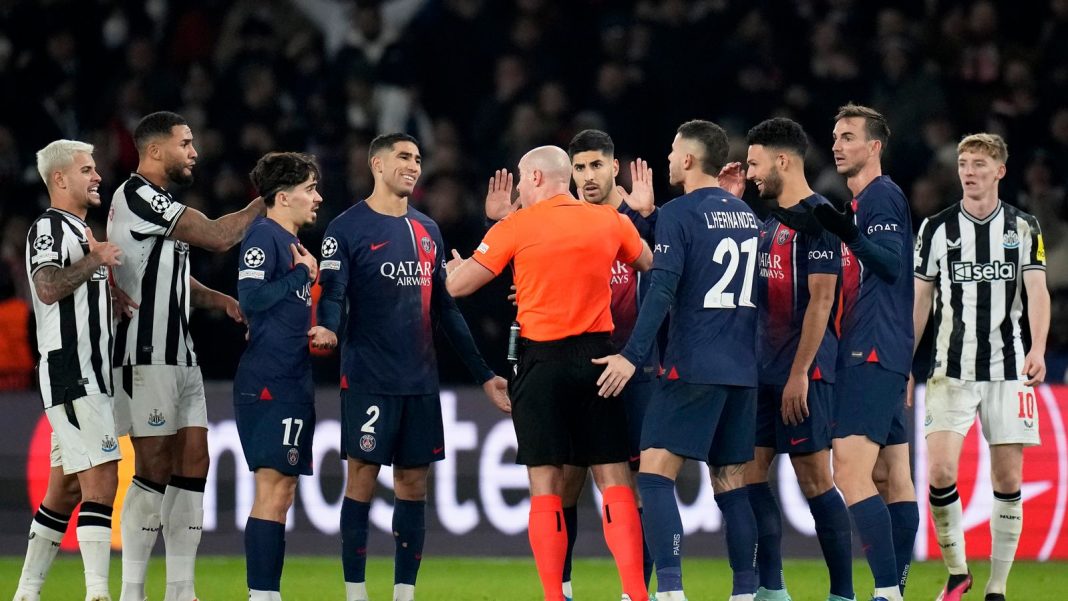The VAR official involved in the decision to award a penalty to Paris St Germain against Newcastle for a controversial handball has been stood down from his game on Wednesday.
Tomasz Kwiatkowski asked referee Szymon Marciniak to go to the screen after he reviewed a potential handball by Newcastle defender Tino Livramento during Tuesday night’s match.
The referee did not give the penalty on-field, but reversed the decision after looking at the incident on the screen.
Kwiatkowski was due to be the VAR official in Wednesday’s Champions League game between Real Sociedad and Salzburg but has now been replaced, Sky Sports News reported.
Newcastle looked to be heading for a famous 1-0 win in Paris until the penalty was awarded against Livramento, allowing Kylian Mbappe to level in the eighth and final minute of added time.
Kylian Mbappe scored the penalty in the 98th minute. Pic: AP
Speaking on Sky’s Soccer Special, former Spurs manager Tim Sherwood labelled the decision “disgusting”, while Newcastle boss Eddie Howe said referee Marciniak should have been stronger to disregard Kwiatkowski’s advice.
Howe said the referee had been placed under “extreme” pressure by the PSG players, and later labelled the decision “poor”.
Had Newcastle won, they would have had their Champions League destiny in their own hands.
Instead, they must now beat AC Milan in their final group game and hope Dortmund get at least a point against PSG to progress to the knockout stages.
Read more from Sky News:
Ideal temperature to heat your home – and other tips to stay warm
Alleged Brianna Ghey murderer ‘tried to kill her with overdose weeks earlier’
Two bungalows to be sold at auction with guide price of £1
IFAB, who set out the laws of world football, have laid out guidelines on what does and doesn’t constitute a handball offence – though leagues also have their own individual interpretations.
More generally, for the purposes of determining handball offences, the upper boundary of the arm is in line with the bottom of the armpit. Not every touch of a player’s hand/arm with the ball is an offence.
It is an offence if a player:
• deliberately touches the ball with their hand/arm, for example moving the hand/arm towards the ball
• touches the ball with their hand/arm when it has made their body unnaturally bigger. A player is considered to have made their body unnaturally bigger when the position of their hand/arm is not a consequence of, or justifiable by, the player’s body movement for that specific situation. By having their hand/arm in such a position, the player takes a risk of their hand/arm being hit by the ball and being penalised
• scores in the opponents’ goal: Directly from their hand/arm, even if accidental, including by the goalkeeper or immediately after the ball has touched their hand/arm, even if accidental







